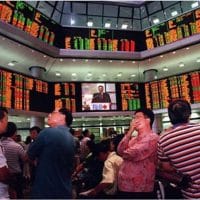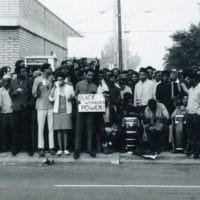New technological platforms like Uber are promising to reshape society: but what is the impact for people and the world we live in? What does this mean for our environment?


New technological platforms like Uber are promising to reshape society: but what is the impact for people and the world we live in? What does this mean for our environment?

We may be living through one of those moments in history that future historians will look back on as a watershed, a period of flux that marked a transition to quite different economic and social arrangements. Unfortunately, in human history a ‘moment’ can be a very long time.

During their storied careers, Magdoff and Sweezy edited the journal Monthly Review, which Sweezy co-founded in 1949, and which still stands as the longest continuously published socialist magazine in the United States.

The hegemony of international finance capital, which led to economies “opening” themselves up to the vortex of global financial flows, demolished both Nehruvian dirigisme and East Asian neo-mercantilism. And the same hegemony has now brought the world capitalist economy to a crisis from which it is in no position to recover.

Monopoly vs. competition

Lower the curtain, change the scene. The atmosphere in the government building in Berlin on August 2nd is fully different, not a bit of similarity. Those present, most in tailored apparel, sit in soft leather chairs and sip aromatic drinks from fine glassware. Who are they? Germany’s power people!

Amazon is an unusual company. With a market capitalization hitting $500bn at the end of July and no profit to show, it is not a company trying to be a part of the market, it is trying to become the market.

I recommend this book, along with the rest of Standing’s body of work, as an example of the kind of outside-the-box thinking the Left needs in place of the dinosaur Old Left’s organization and policy models if it is to be relevant to the new economy.

I think Marxism analyses the contemporary world in a way which nobody else did. Lenin had said the strength of Marxism lies in the fact that it is true. The point is that it is a genuine scientific discovery.

Why are so many modern capitalist societies addicted to militarism? On the one hand, these societies are intensely growth oriented and expansionist. On the other hand, militarism is a convenient way of absorbing economic surplus and thereby countering the stagnationist propensity of monopoly capitalism.

The decline in unionization is one of the most important factors promoting the concentration of income at the upper end of the income distribution. The statement may not surprise you, but the fact that this was the conclusion of an IMF study of the causes of inequality might.

How does race relate to class in capitalism? Is it intrinsic and essential to the reproduction of capital, or merely an accidental feature of particular capitals? In this recent essay by Richard Seymour, and originally published on his Patreon, Seymour considers a debate within Marxism on the relationship between class, race and capitalism.

The latest issue of the London Review of International Law features an interesting review essay by Robert Howse, in which he makes the case for progressive international lawyers attending to the discipline of economics and the insights that can be gained from it, in particular from what he sees as more progressive economists. Howse’s essay […]

The indirect effect of the increase in income inequality is economically more injurious than the erosion of company earnings or a stock market downturn.

Largely unbeknownst to the general public, many media executives and top journalists of almost all major U.S. news outlets, political and business magazines, public broadcasters and press agencies have long been members of the Council on Foreign Relations (CFR).
